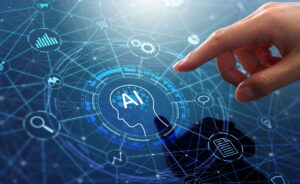The question is not if Ia It will change the workforce. The question is: will you be prepared? Technology has always transformed work and society. Artificial intelligence is just accelerating this rhythm.
Imagine being a rural or factory worker in 1850, watching new machines arise that threatened to take their jobs. Fear was intense, as was the reaction of society. People protested against automation, desperate to stop progress.
But the story moved on. The machines replaced much of the heavy work in factories and farms, but humanity did not collapse, it advanced. As society has adapted in the following decades, life expectancy increased, work has become safer, people worked less hours, and the global standard of living fired.
We have seen this cycle before. AI is just the next wave. Instead of destroying jobs, it is redefining the value of the work. The workforce has adapted before, and will adapt again. The winners will be those who embrace this faster change.
AI is following a family script. As an economic anthropologist who studied socioeconomic transitions, I see worrying historical patterns resurfaced.
In the 1990s, Russia underwent a dramatic change from communism to capitalism. As society resisted change, millions of people who depended on governmental jobs and the security of the socialist system were lost in a rapidly changing economy.
Life expectancy plummeted, many resorted to drugs, protested or left the workforce. Nostalgia for the past has grown, and at the end of the decade Russia elected an authoritarian leader who promised to reverse capitalist policies and systems. Now Russia faces the consequences of this resistance to progress, and will lead several generations to undo the damage of this social reaction to change.
The nineteenth -century industrial revolution followed a similar trajectory. Economic turbulence and displacement led to social agitation, and many countries responded with fascist and communist authoritarian regimes. It took two world wars and a great economic restart to move forward. But after we embraced the change, we get much better.
The lesson? If we do not adapt fast enough to the current economy driven by AI, we risk repeating the mistakes of history. This time, however, we have the opportunity to avoid suffering by embracing the change proactively.
With AI, adaptation needs to be faster
To avoid the type of social agitation we have seen in previous economic transitions, individuals need to get out of their comfort zones and adapt to IA faster than they think is possible. How is this personal level adaptation?
Learn about Ia
If you are not using AI tools actively today, you are already being left behind. Start by paying for access to AI leading platforms like chatgPT. Immerse yourself in AI -focused content from thought leaders such as David Shapiro, Matthew Berman, Julia McCoy, Wes Roth, Mo Gawdat, Dwarkesh Patel and Peter Diamandis. The more you get involved, the better you will understand how AI is remodeling work and business.
Develop your intuition
AI is phenomenal in analyzing data and generating insights – but it does not have the ability to perceive cultural changes, anticipate human behaviors, or see the broader picture beyond gross information. This is where human intuition becomes critical. Companies will no longer value “data oriented” employees to prioritize those who can combine data with deep perception and future vision.
Become a performer
Jobs that depend on human energy, emotion and real -time interaction – such as sales, live performances, oratory and law – will continue to be high demand. AI can write songs, but it cannot replicate the electricity of a live show. AI can analyze legal arguments, but cannot match the presence in court of a skilled lawyer. The workforce of the future will favor those who bring an irreplaceable human presence to their functions.
How to work with AI
The workforce is not facing extinction – it is evolving. The key is not to resist AI, but integrate it into its workflow. Whoever uses AI as a amplifier will overcome who fears it.
Consider human collaboration in action: AI platforms, such as AI agent management systems, allow companies to optimize workflows by keeping humans in the command of strategic decisions. For example, platforms such as Wayfound help companies implement AI agents to simplify tasks, while human workers focus on creativity, strategy, and high value interactions. This is the model of the future – humans and was working together.
Preparing your career for the future in a world with
AI does not destroy jobs – it is a catalyst to rethink the work. The best way to protect your AI job is to bet on our full humanity, the things we set aside when we start looking at screens instead of focusing on each other. Invest in skills that AI cannot easily replicate – intuition, sensory intelligence, and the ability to create energy in live interactions.
The future belongs to those who embrace the AI, not to resist it. The faster we get out of the comfort zone and adapt, the sooner we will all win.
“The opinions expressed in Fortune.com’s opinion articles are exclusively the views of its authors and do not necessarily reflect the opinions and beliefs of Fortune.”
2025 Fortune Media IP Limited
The Post AI will take your job. Accept this-and adapt APPEARED FIRST ON Infomoney.











